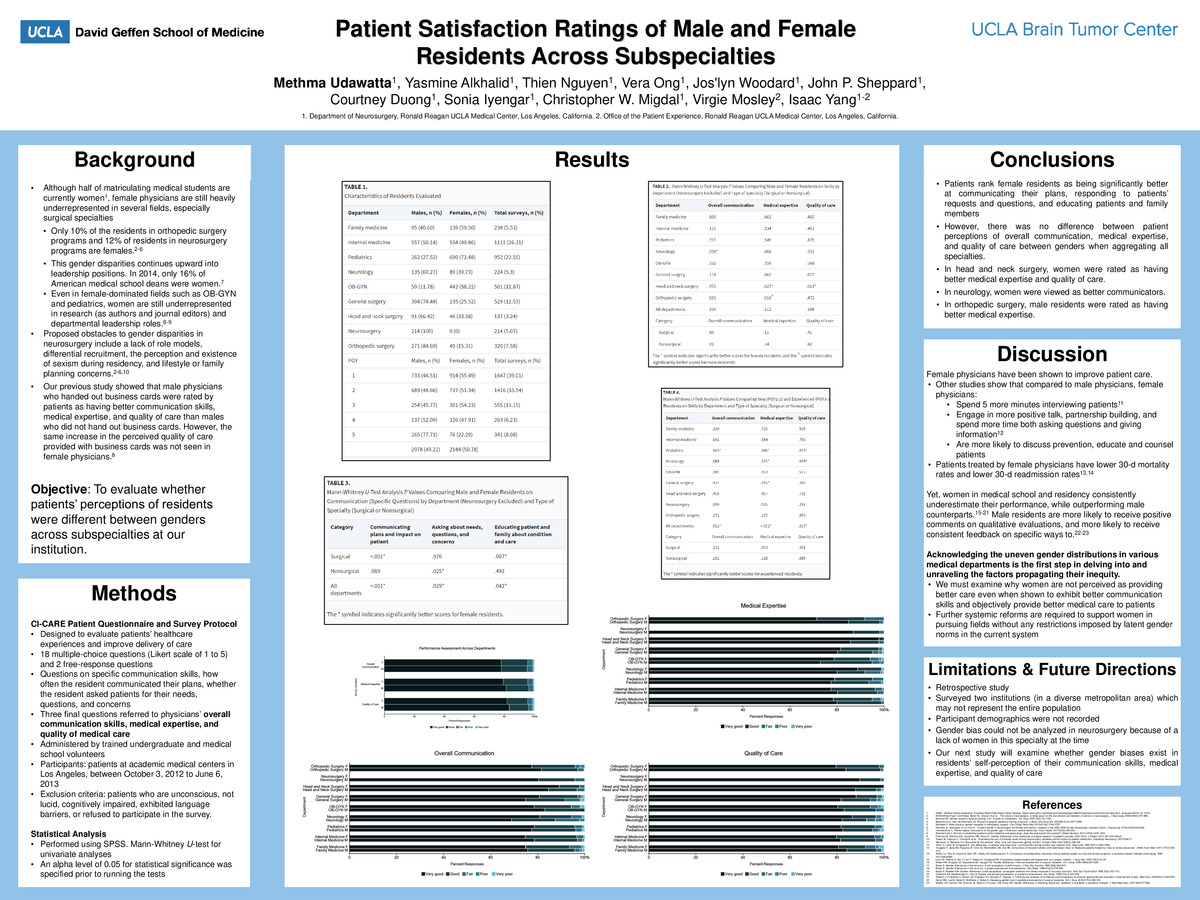-
Author
Methma Udawatta -
Co-author
Yasmine Alkhalid, Thien Nguyen, Vera Ong, Jos'lyn Woodard, John P. Sheppard, Courtney Duong, Sonia Iyengar, Christopher W. Migdal, Virgie Mosley, Isaac Yang
-
Title
Patient Satisfaction Ratings of Male and Female Residents Across Subspecialties
-
Abstract
Background: Women currently comprise approximately 50% of incoming medical students yet continue to be underrepresented in certain medical subspecialties.
Objective: To assess whether gender plays a role in patients' perception of physician competency among different specialties.
Methods: We administered surveys at two academic medical centers to patients who were stable, cognitively aware, and indicated English as their primary language. Survey questions evaluated communication, medical expertise, and quality of care.
Results: A total of 4222 surveys were collected. Females comprised around half (n = 2133, 50.7%) of evaluated residents. First-year (n = 1647, 39%) and second-year (n = 1416, 33.5%) residents were assessed most frequently. Internal medicine conducted the most surveys (n = 1111, 23.6%), whereas head and neck surgery conducted the least (n = 137, 3.24%). There was no statistically significant difference between patients' perception of male and female residents of the same year in overall communication skills, medical expertise, and quality of medical care. Female residents outperformed their male counterparts on specific questions evaluating the communication of treatment plans, patient education, and patient satisfaction (P < .001, P = .03, P = .04, respectively). Unsurprisingly, patients' perceptions of residents' overall communication skills, medical expertise, and quality of medical care significantly improved when comparing more experienced residents to newer residents.
Conclusion: There is no difference between overall communication, medical expertise, and quality of care between sexes, and across subspecialties. Though gender inequalities currently exist most starkly in practitioners in surgical subspecialties, women in surgical residencies were much better communicators than their male counterparts, but still perceived to have similar levels of medical expertise and quality of care.
-
College
AMC
-
Zoom
-
PDF

